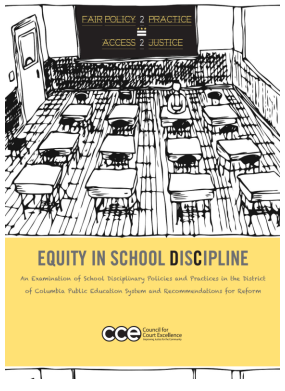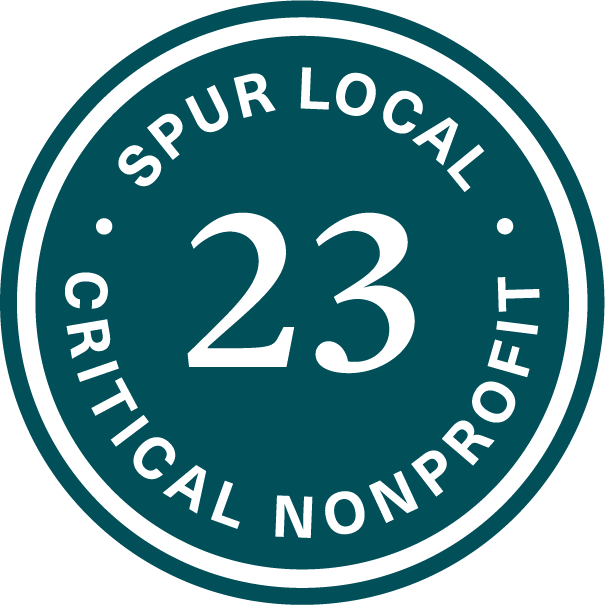Digital Library
This is a supplemental document for CCE's School Jury Education Project (SJEP).
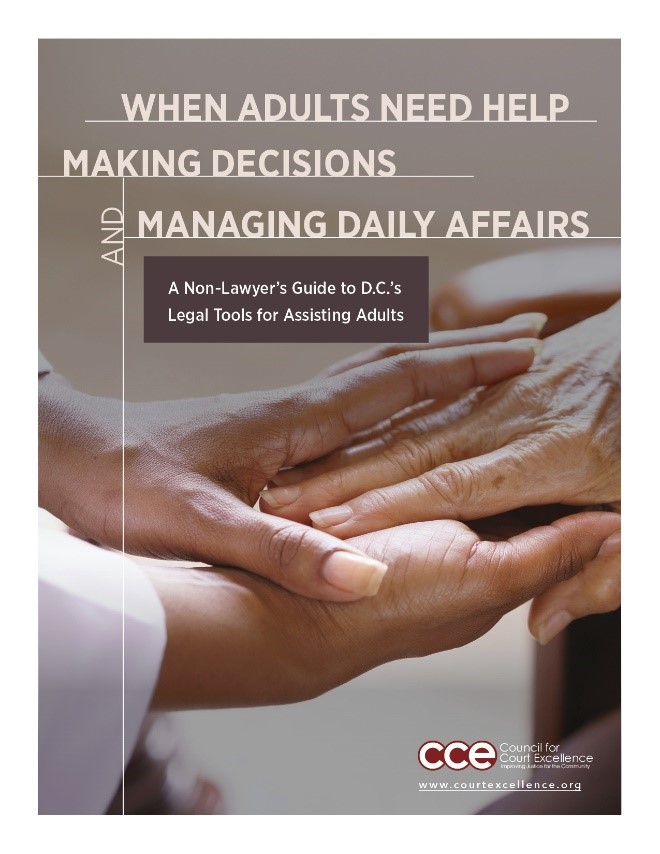
When Adults Need Help Making Decisions and Managing Daily Affairs, a guide that explains in non-technical language the resources that are available to people in the D.C. area who, because of illness, physical or intellectual disabilities, aging, injury or dementia, may need extra help when making important life decisions. This guide can help D.C. residents and family members, social workers, lawyers, and anyone who is seeking to support a loved one who may need assistance making legal, financial, educational, or medical decisions.
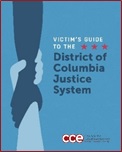
CCE’s Victim’s Guide has been a stalwart resource for victims and their advocates for nearly 30 years. While previous versions focused on court proceedings and the trial process, this revision takes a more holistic approach because most criminal cases do not go to trial. The new Victim’s Guide provides a comprehensive overview of various facets of D.C.’s justice system and directs victims to the myriad community-based resources that have become available in recent years.
![Personal Affairs Record Book: Fillable Format [English]](uploads/publications/PARB.png)
This "fill-in-the-blanks" estate planning Record Book is organized to help you list and record the location of your important personal and financial papers. It is a handy reference which has been distributed widely throughout the nation.
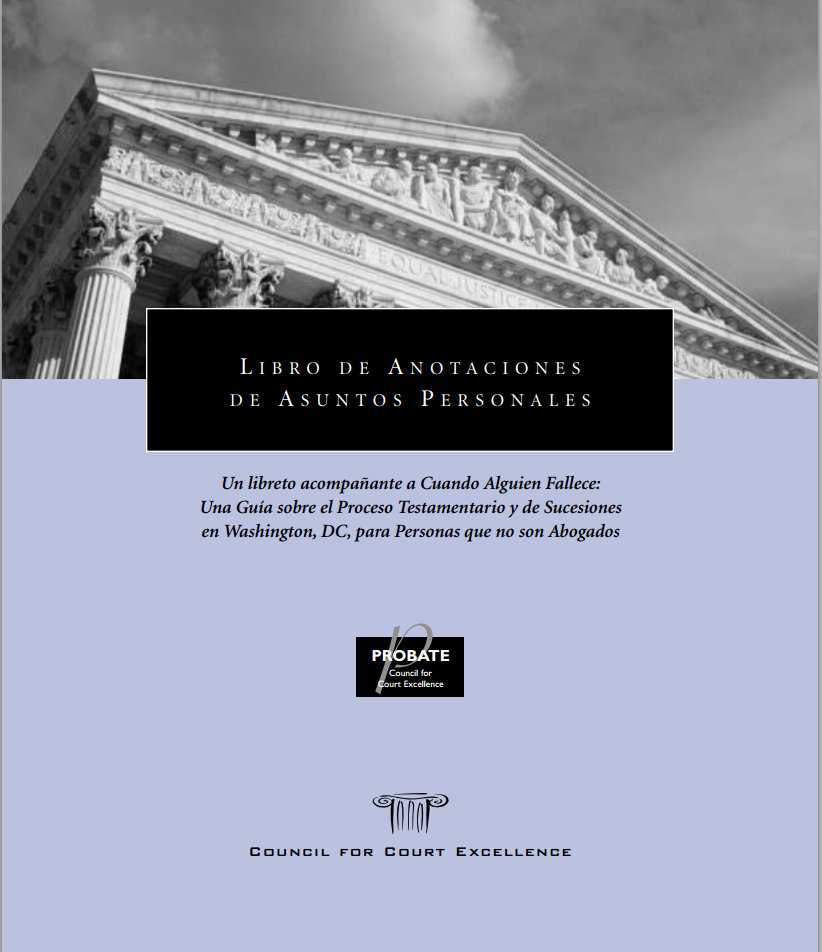
(Spanish Version of the Personal Affairs Record Book.) Esto es un libreto acompañante a Cuando Alguien Fallece: Una Guía sobre el Proceso Testamentario y de Sucesiones en Washington, DC para Personas que no son Abogados.
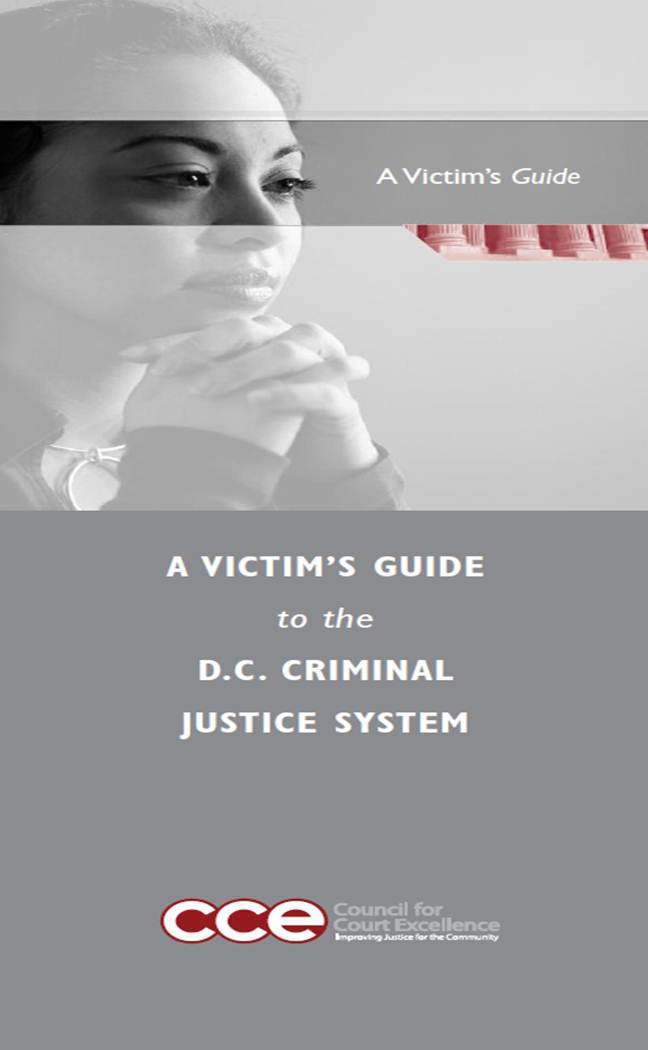
This fully updated resource provides clear step-by-step guidance to help victims of crime and witnesses to crime navigate the process and access all available services.
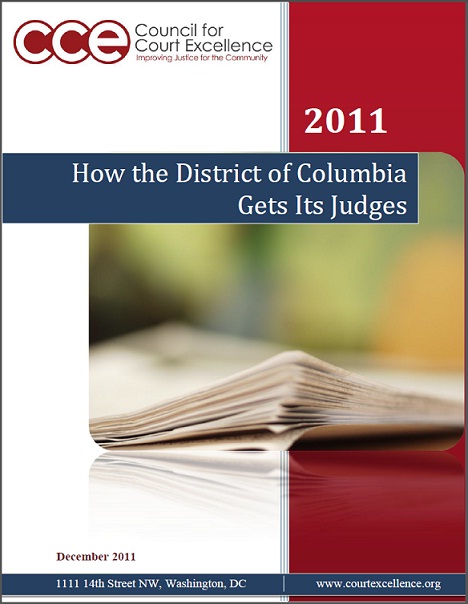
This publication, which updates the 2005 Guide, is in two parts. Part One describes the District of Columbia’s judicial appointment and reappointment process for both trial judges on the Superior Court of the District of Columbia (Superior Court) and appellate judges on the District of Columbia Court of Appeals (Court of Appeals). Part Two narrows that focus to cover only the Superior Court. In order to illuminate the various pathways to becoming a trial judge in the District of Columbia, Part Two provides detail, based on Council for Court Excellence research, about the professional backgrounds of the 150 persons who have been recommended by the District of Columbia Judicial Nomination Commission for nomination to the Superior Court between 1994 and August 2011.
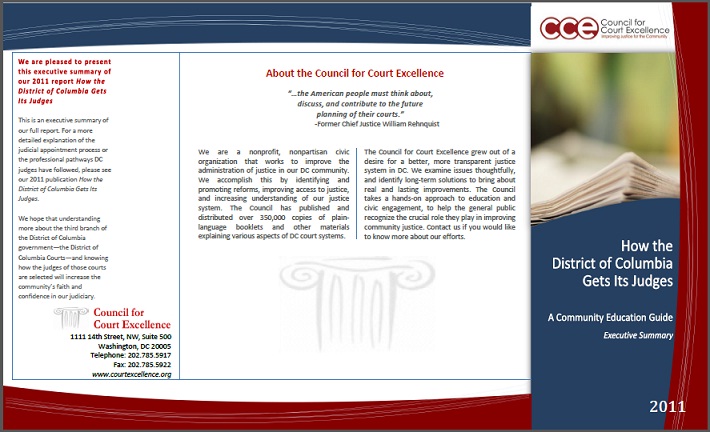
This brochure acts as an Executive Summary of the full report, also available on this site.
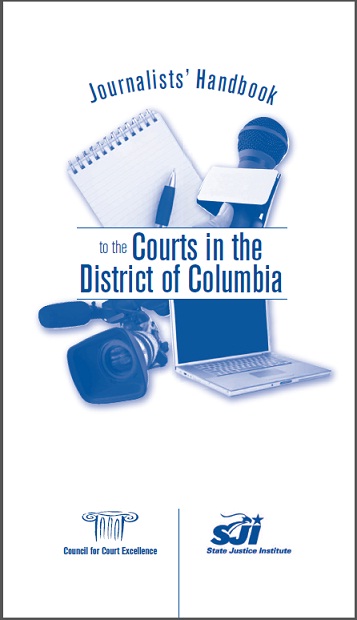
The Handbook is accurate as of September 2009. Keep in mind that court rules and procedures are subject to change. Points of view expressed in the Handbook are those of the authors and do not necessarily represent the official position or policies of the State Justice Institute or the other supporters of the Handbook.


